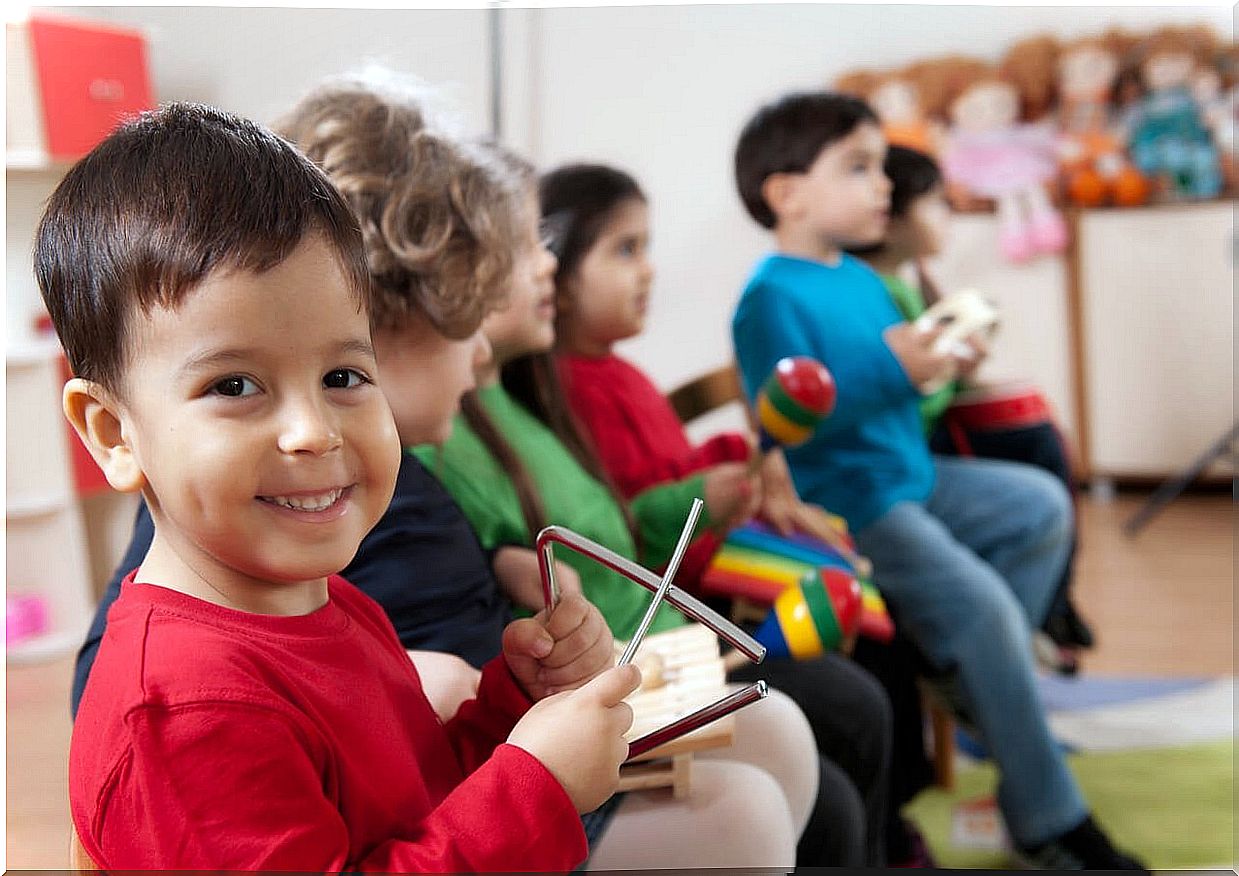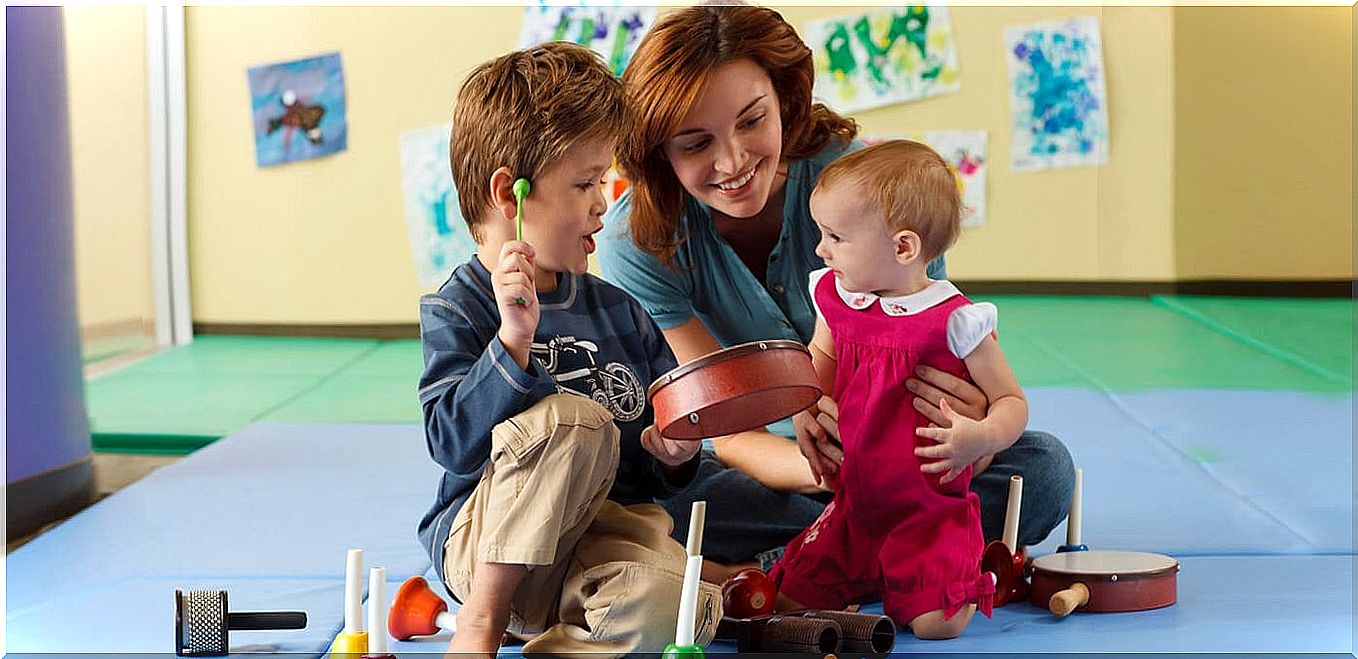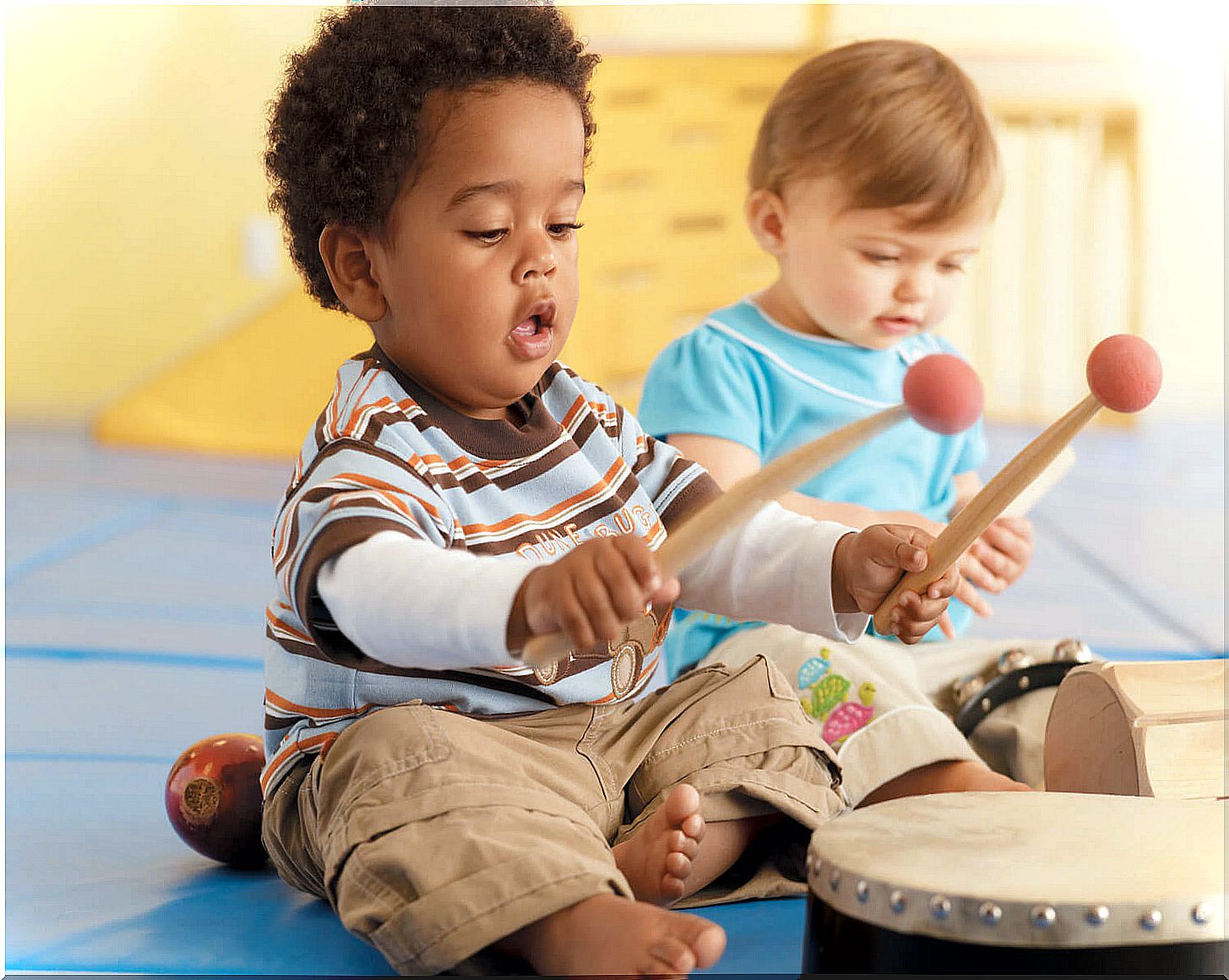5 Benefits Of Music Education

All of these actions help a lot to develop concentration and mental focus in children. And those are just two of the benefits of music education.
Language development stands out among the many benefits of music for children. An example of this is seeing how children between 2 and 9 years old learn lyrics in just a few days. That’s because music helps develop listening skills and vocabulary, as well as improves pronunciation.
Children are born with an innate ability to learn language, no matter where they are. But music education can enhance and improve these natural abilities. These skills must be reinforced and constantly practiced, and music is a great ally. No wonder that music is practiced in many kindergarten or elementary schools.
The effect of music education on language development in children can be seen in the brain. Scientific studies have concluded that music training causes the left brain to develop. This part is related to language processing. Also, matching familiar songs with new information can help children memorize new content.
Over time, language development tends to improve the parts of the brain that help in the musical process. In turn, the musical experience strengthens the ability to be verbally competent. “The two activities are complementary,” says Dr. Kyle Pruett, professor of child psychiatry at Yale School of Medicine.

Music raises the IQ
In a study carried out and published in the journal Psychological Science, a small increase in the intellectual quotient (IQ) was evidenced in 6-year-old children who received weekly lessons in singing and piano.
The study was as follows: 3 groups of 6-year-old children participated. The first group took piano and singing lessons for nine months. Another group of children took drama classes and, finally, the third group did not attend any specific class. This study was carried out with the purpose of identifying whether exposure to the arts in general would have an effect on the increase in IQ.
The results showed that children who received music lessons during the school year had an increase in IQ of an average of 3 points more than the other groups. The group of children who attended drama classes did not have the same increase in IQ, but they did improve their social skills, something that did not happen in children who attended singing and piano classes.
Other research indicates that a musician’s brain works differently. Studies suggest that there is a greater growth in neuronal activity in children who attend music classes than those who have not received musical training.
And that’s not all! Music education can also help improve children’s memory. It has been shown that children who have received musical training tend to be quite capable of remembering verbal information stored in memory.

Learning music enhances a child’s skills
Another benefit of music is that the child learns the habit of being disciplined. Furthermore, being part of the musical world improves their self-esteem, since the child can feel proud of themselves when they can play or sing a song.
Music Together is an early childhood music development program. Its co-founder Kenneth Guilmartin says that learning music involves all kinds of learning. This does not mean that listening to Mozart makes a child smarter. But it’s an enjoyable pastime as well as being an exhilarating activity.
Music education has many benefits for a child’s development and growth. Music is part of our lives, it is present on the radio, in television commercials, in movies… Anyway, everything has music. In addition, the child can benefit even more from attending classes to learn to play a musical instrument or even singing lessons.
Perhaps you think that your child has neither the talent nor the vocation to succeed in the music business. But actually, you don’t need to have great skills to play an instrument or be able to sing in various tones. More important than that is that the child is motivated. Surely, little by little, magic will happen.









